|
⬆︎ It is a wholly different thing to tell a person of means, of privilege, who has a measure of economic security and stability to "be patient, God is good" and telling someone who lives with food insecurity, unstable shelter, and a lack of economic opportunity to "be patient, God is good." Do you see how this works? ⬇︎ “Frankly, I have yet to engage in a direct action campaign that was ‘well timed’ in the view of those who have not suffered unduly from the disease of segregation. For years now I have heard the word ‘Wait!’ It rings in the ear of every Negro with piercing familiarity. This ‘Wait’ has almost always meant ‘Never.’ We must come to see, with one of our distinguished jurists, that ‘justice too long delayed is justice denied’” (MLK, Jr., Letter). “But in general, when ancient Latin writers used the term patientia, they didn’t have heroes in mind; they were thinking of subordinates and victims. Patience seemed an appropriate attitude for people of no account who were on the receiving end of actions or experiences. For these people—powerless, poverty stricken, and often female--patientia was ignominious. Patience was the response of people who didn’t have the freedom to define their own goals or make choices. Notably patience was a response of slaves, for whom it was an inevitability, not a virtue” (Alan Kreider, The Patient Ferment of the Early Church: The Improbable Rise of Christianity in the Roman Empire).
2 Comments
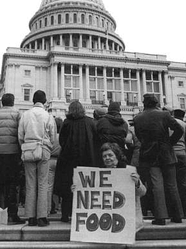 I am in favor of and an advocate for a public social service net--I worked hard at and made my livelihood from one for many years. I have designed and facilitated many programs on behalf of our most vulnerable. While still a good thing, I am very weary of a government-run and semi-government (by design which receive substations government funds either by the grant process of by legislation (or law) non-profit system (yes, they are one system) whose programs still leave the poor in poverty with little or no escape (no upward mobility, if you will) and, in the end, that mostly benefits the politicians and EDs/CEOs who are dependent on the poor, well, being poor for their votes and grant money, and, as well, the massive bureaucracies--the armies of clerical and professional poverty-fighters whose livelihoods and their own upward mobility are only secure in as much as poverty continues. The least likely beneficiary for such a system is the actual poor. In fact, too many people and groups are dependent on the poor remaining poor. I have a problem with this. It is time to rethink how poverty is addressed. 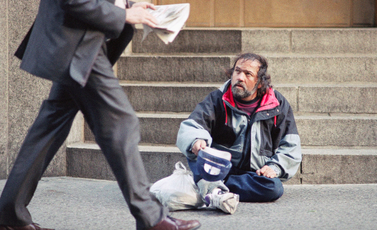 Even large corporations—the biggest ones—aren't geared to support a truly anti-poverty approach to, well, end poverty and/or move the poor out of poverty. Year ago now, I had asked one of the most involved funders of poverty programs (GE, Inc.) if they'd consider a new approach to fighting poverty, one that will actually move individuals and families OUT of INTERGENERATIONAL POVERTY and the response: "Sorry, we can't. That's just not one of our buckets." Yes, indeed, all players need to be at the table (including BIG BUSINESS and the GOVERNMENT), yet I believe the church, or better, churches (implying churches local) are the ones to offer a new (really an older) paradigm for fighting poverty. But, in order to be able to and best be positioned to alleviate poverty and actually move people (really communities) out of poverty, the church needs to rethink church, which in the end might be the harder system to undo.
*Here are the first set of quotes from a presentation I gave on "Church (local), the poor and their neighborhood," where I sought to ask: "If a local church is “the flesh of a neighborhood” (i.e., the body of Christ local), does this mean a church should be activity concerned about the flourishing of its neighborhood?" This is the first post of a series of quotes (sets of quotes) to provoke our laissez-faire attitutdes and posture toward the issues of poverty and regarding the poor. For all the posted "Church (local) quotes >>
Gary Haugen, President and CEO of International Justice Mission, raises an important point:
Gary points out that for poverty to be eradicated, decreased, or lessened for individuals and communities, everyday violence needs to be addressed first. Good intentions, targeted anti-poverty programs, and crisis services are nice and fill a need, but they will not, ultimately, bring an end to poverty. Building a school in an impoverished global city is a good thing, but it does not good for the young girls who need to walk to school if that walk endangers their lives. As I heard Gary's TED Talk and read his book, The Locust Effect, I could not help but think locally as I serve as a pastor in a very poor community in New Haven, CT, called The Hill. Violence is an everyday threat to good families, adults, teens, and children who are seeking to manage messy, difficult lives in order to have any sense of a good future.
International Justice Mission is an organization that seeks to rescue victims of violence, sexual exploitation, slavery and and protect the poor from violence throughout the developing world.
While attending an early morning men’s prayer and devotional time (as a guest of the one leading the study component), I was horrified by some of the strained thoughts on the passage. The study leader actually tried to stick to the James text; it was the poor rich readers that made comments to lessen the impact of what God was saying through James' words in chapter 5 of his letter. Here are some of my thoughts as the poor rich readers of the Bible commented on James’ words:
Some might not think it, but I was being charitable here. My thoughts were a bit more harsh and even more direct than what I penned above. I will grant that it took me eighteen years after becoming a Christian to begin to see how suburban, affluent, and political I had been reading the Bible--all the while thinking I was interpreting rightly. We need to stop taking the poor out of the texts that actually call us to judgment for not doing something for the poor--neutrality, distance, time, politics will not be allowed as excuses on that day God judges all of our hearts. For on "that day" our riches will have rotten and our garments will have become moth-eaten. Our gold and our silver will have rusted; and their rust, on that day, will be a witness against us and will consume our flesh like fire.
Dangerous Sunday Morning Devotion: Can’t benefit from the milk if your can’t handle lactose8/16/2015
A while ago, I was reading a novel about the investigation of a mysterious plane crash. It was a great read. Enjoyed it immensely. It was entitled Crashers, written by Dana Haynes. “Crashers” is the name given to Go-Teams who are sent in immediately to investigate airline plane crashes, leading experts from specific fields vested in determining the cause of the crash, so it never happens again. In the midst of the storyline, a character, not necessarily religious, ponders a rather curious thought that got me thinking about the church and the poor. She said, "Land of milk and honey . . . Bloody lot of good it does if you can’t handle lactose and you’ve got diabetes to boot."
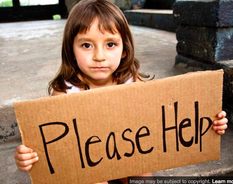 Children who live in poverty are
“Everyone should just pull up their bootstraps and get to work, then they won’t be dependent on government or charity.” How many times do I hear this or something akin to it in words and attitude? Problem is, some people don’t even have boots; and some don’t even live long enough to put on these mysteriously, magically appearing boots. (As if everyone is born with these boots.) But enough of the clichés. Fact is we all certainly not on the same playing field; some experience major setbacks, obstacles, and barriers that prevent them from playing the game well, even on the field they have. (Sorry for another cliché and metaphor, but you get the point.) Children—at least the children that make up these demographic profiles—do not have the same level of access to the advantages of our own constitutional rights and economy. To put it in biblical terms, there are unjust situations within our communities that prevent children from growing up, getting an even start out in life, that oppress their abilities to access the same advantages of other children. Might this be what Isaiah meant when he rebuked Israel? “So as to deprive the needy of justice In light of facts like those listed above, we, too, should hear the prophet’s words, “Now what will you do in the day of punishment?” (Isaiah 10:3a). Perhaps, considering what you will do in these days can be a remedy for our indifference and privileged arrogance and the blight of those living with disadvantage.
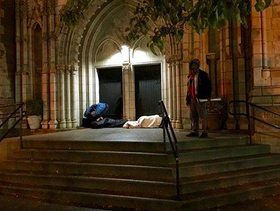 Church leaders should, at least, question who benefits and who does not benefit from current church structures and bureaucracies (i.e., church life and function). The building-centered and business-centric models that most contemporary church-systems emulate can result in duplicitous habits, which can be suggestive of a protective posture for its leaders and for the cultural status quo. Our ways of doing church are not neutral. The temple system into which the gospel is introduced in the New Testament, as well as its leadership, were antithetical to the arrival of the kingdom that had been inaugurated by Jesus’ arrival. Perhaps it is not the construction of temples or the development of religious bureaucracies per se, but the energy and resources used to maintain these systems that promote the status of their own authorities and stakeholders, which can distract (to put it blandly) from a church’s responsibility toward the poor. Rather than laboring to maintain current church systems and structures, contemporary church leaders need to promote the church’s responsibilities to the poor. Otherwise, they may replicate the social and cultural location described throughout the Gospels and the Acts of the Apostles. The cost of doing church business and maintaining church bureaucracies are not neutral to the church’s role as advocates for the poor. This includes the allocation of human, financial, and social capital available in and through a church or a consortium of churches for use in the public square. Such allocations of financial and human capital could be used for advocating and caring for the economically vulnerable and the poor. The resources and capacity of the local church need to be evaluated, not by our contemporary cultural expressions of church life, but in terms of the kingdom of God, which certainly includes addressing the causes of poverty and advocating for the poor. Andrew Davey, in his book Urban Christianity and Global Order, insists that a church concerned about “its own sustainability must have strategies other than the growth paradigm” (p. 112). Contemporary church growth models are multimillion-dollar business ventures with huge marketing campaigns and an elite celebrity leadership of its own that promote costly expectations for a local church. There should be consideration whether such growth expectations divert resources and human capital away from a church’s responsibilities regarding the poor. While a church’s sustainability should be directed outward and toward the future, it should also have positive, redemptive consequences for the community, with special consideration for its vulnerable populations. Adapted from chapter 1 of Wasted Evangelism, "Widows in Our Courts (Mark 12:38–44): The Public Advocacy Role of Local Congregations as Discipleship."
|
AuthorChip M. Anderson, advocate for biblical social action; pastor of an urban church plant in the Hill neighborhood of New Haven, CT; husband, father, author, former Greek & NT professor; and, 19 years involved with social action. Archives
February 2024
Categories
All
|
Pages |
More Pages |
|

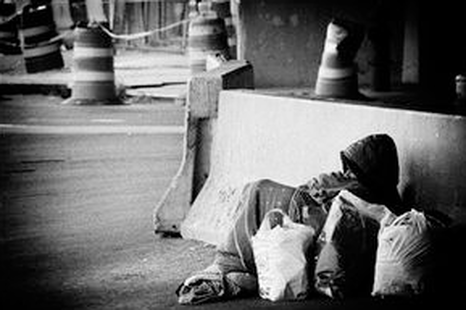
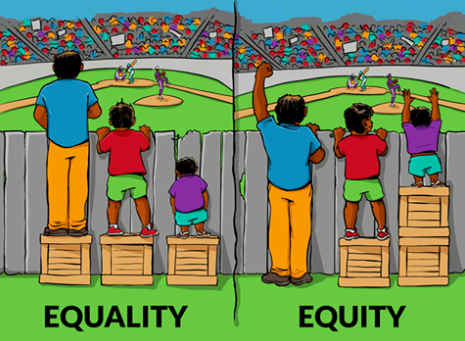
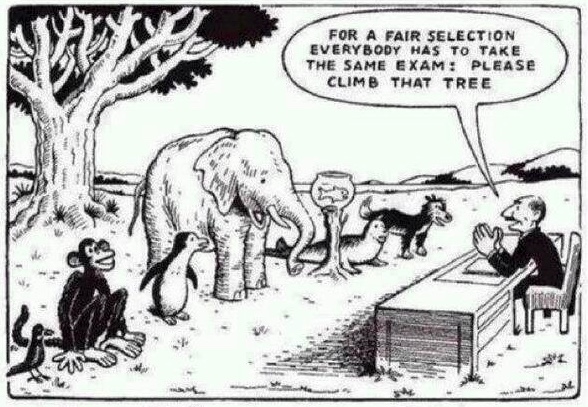
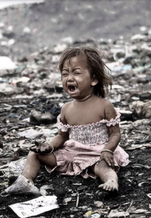
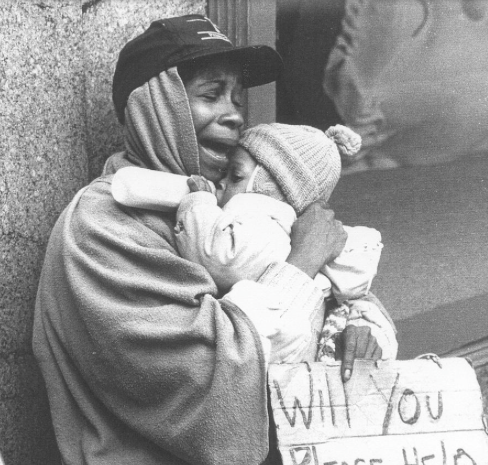
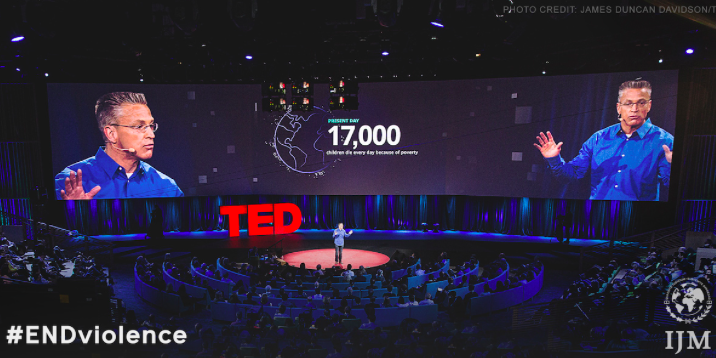
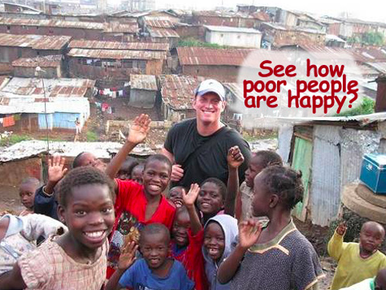
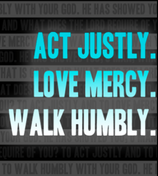
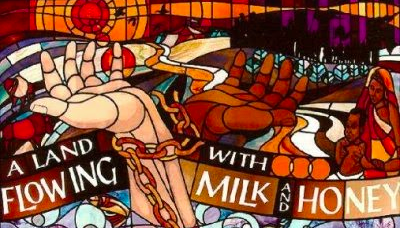
 RSS Feed
RSS Feed